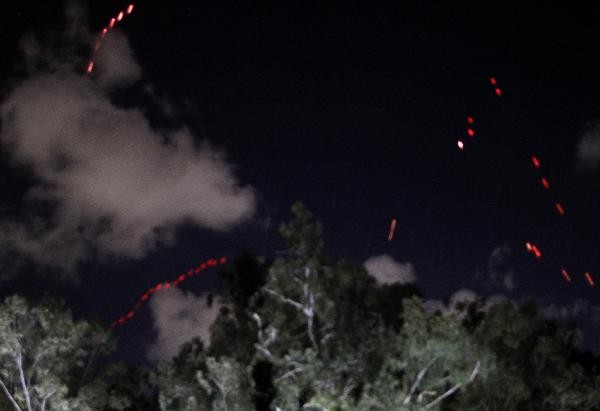The international community has stepped up its criticism and showed more worries about the Western -led air strikes against Libya following the forces launched operations to enforce a no-fly zone over the North African country.
China expressed its regret and opposed the use of force in international relations in a foreign ministry statement when commenting on the Libyan crisis and the Western-led air strikes.
"Following the Afghanistan and Iraq wars, a military strike against Libya is the third time in this century that a number of countries wielded force against a sovereign state," said a signed commentary in China's main newspaper the People’s Daily.
"It should be noted that attempts to resolve the crisis using military means affects the U.N. Charter and the norms governing international relations,

"In today's world where some people with the Cold War mentality are still keen on the use of force, people have reason to express concerns about the effects of the military action," added the commentary entitled "Do not abandon hope for peaceful resolution to Libyan crisis."
Russia called on Britain, France and the United States to stop air strikes against the non-military targets in Libya, saying the attacks had caused civilian casualties.
"The resolution (on non-fly zone) is defective and flawed," said Russian Prime Minister Vladimir Putin, adding "It allows everything. It resembles medieval calls for crusades."
"In that respect we call on countries involved to stop the non-selective use of force," its foreign ministry spokesman Alexander Lukashevich echoed.
India's Foreign Minister S.M. Krishna said the strikes would lead to more harm to "innocent civilians, foreign nationals and diplomatic missions."
"India calls upon all parties to abjure violence and the use of threat and force to resolve the differences. I think the need of the hour is cessation of armed conflict," he told reporters.
Arab League chief Amr Moussa condemned the "bombardment of civilians" and called for an emergency meeting of the group of 22 states to discuss the Libyan issue.
He demanded of a report of the bombardment in which the Lybian armed forces command said 64 people, most civilians and children, were killed.
German Foreign Minister Guido Westerwelle said the Arab League criticism of the air strikes showed that Germany had "good reasons" to fear for the military intervention.
Turkey Foreign Minister Ahmet Davutoglu was critical of the formation of the coalition leading the action and stressed the objective should be "not to launch a large-scale war" in Libya.
Iran's Supreme leader Ayatollah Ali Khamenei charged the Western intervention in Libya was aimed at "getting their hands on its oil", as claimed by Venezuelan President Hugo Chavez.
Bulgarian Prime Minister Boyko Borisov said the "adventure" was motivated by "petrol and who will exploit Libya's oil fields".
Namibian President Hifikepunye Pohamba regarded the strikes as an "interference in internal affairs of Africa", backing the 53-nation African Union stance against "any kind of foreign military intervention" in Libya.
Loud explosions and heavy anti-aircraft gunfire were heard in the Libyan capital city of Tripoli at around 9:00 p.m. local time (1900 GMT) on Monday as the third round of Western-led air strikes started.
Many civilians were killed and wounded in this wave of attacks, according to local TV.
Libyan government spokesman Mussa Ibrahim said the Western countries launched three consecutive days of air strikes after Libyan armed forces announced a comprehensive cease-fire and stopped all military actions. The majority of Libya's civil airports and seaports were destroyed during the air strikes.
























